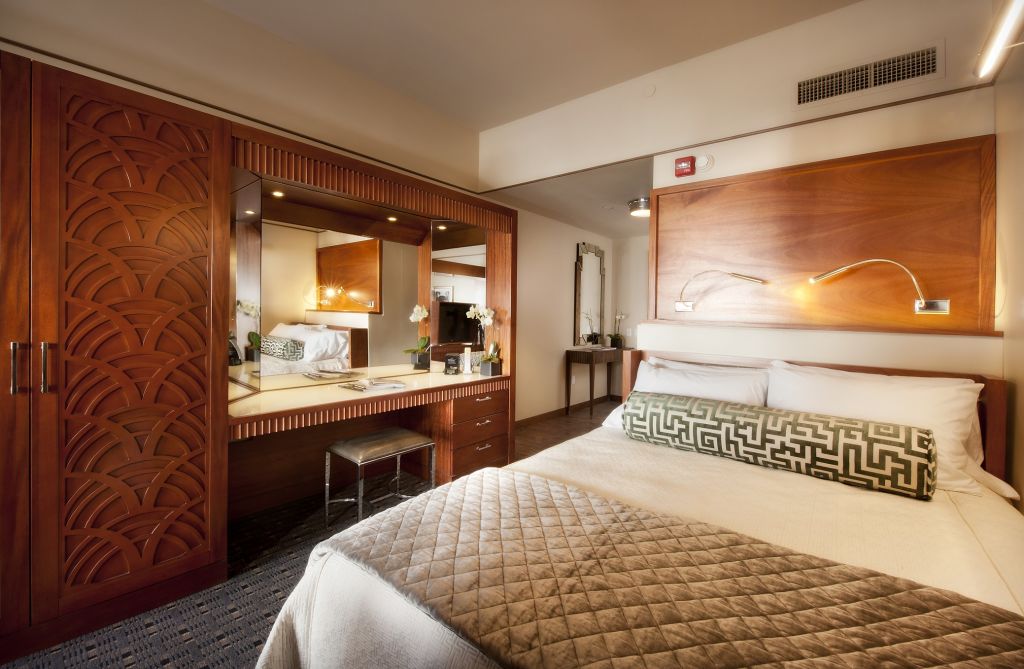
5 hot trends the world's top hotels are eyeing to gain an edge
To say that the traditional hotel industry has had a shakeup in recent years would be a bit of an understatement. With the massive disruption of short-term rentals such as Airbnb, and the millennial travel market also increasing dramatically, hotels need to keep up.
But the sharing economy and millennials are not the only things keeping the hotel industry on its feet — as technology has become a part of our everyday lives, hotels are having to think outside the square more than ever before.
Here are the top five emerging hotel trends to keep an eye out for.
Yes, an Instagram butler is a thing
In what this hotel has claimed to be a world’s first, the Conrad Maldives Rangali Island is providing the services of an ‘Instagram Butler’, who is solely dedicated to helping guests achieve the perfect travel-envy Insta posts.
The butler will advise on the best time for photos, curation of the shots, provide physical props and obviously, be the one to snap away. The hotel also offers an ‘Insta trail’, featuring signs pointing to all the best gram-worthy locations on the island.
The service is a savvy offering, attracting social media enthusiasts, during a time when social media plays a direct role in what makes a modern holiday. After all, is a holiday even a holiday these days if you can’t make everybody back home green with envy in the process?
Grab ‘n’ go goes gourmet
Whilst some hotels have already been offering simple grab ‘n’ go food for a number of years, in the form of say, a baguette or wrap, other ‘lifestyle hotels’ are now specifically targeting millennials and consumers who want the freedom to decide how and where they’ll eat their food — just as they do at home.  It’s like a mini food market inside the hotel. Photo: Hotel Irvine Facebook
It’s like a mini food market inside the hotel. Photo: Hotel Irvine Facebook
Grab ‘n’ go outlets are becoming more prominently placed in hotels, who are incorporating local providers into these spaces, to further enhance the local experience of the guests’ stay, as well as making these food services available to the public to help increase revenue.
The Marketplace at the Hotel Irvine in Irvine, California is the perfect example of this, providing fresh, locally sourced offerings to guests, with reports of drawing in 50 per cent of its business from the local community.
Smart speakers to enhance experience
Using the landline telephone in your hotel room to order room-service may just soon be a thing of the past, particularly when smart speakers, like Amazon’s Echo, are making their way into hotel rooms. The speakers will work much the same as in your own home, being connected to other smart devices like, speakers, thermostats, or lights, to be simply controlled with your voice.  Perhaps solo travellers won’t feel so lonely with Alexa in the room. Photo: Amazon
Perhaps solo travellers won’t feel so lonely with Alexa in the room. Photo: Amazon
Amazon introduced their new service called ‘Alexa for Hospitality’, specifically designed for the hotel market, where certain service aspects would be highlighted, such as asking about the hotel facilities opening hours or the current travel time to the airport.
With some recent privacy concerns being raised around the use of smart speakers and how much information these companies record, it may be interesting to see how hotel guests respond to this advancement.
Say hello to artificial intelligence
Continuing on the technological advancement theme, we may also expect artificial intelligence (AI) systems to not only answer our questions in the form of smart speakers, but also to act as our concierge, in the form of a robot.
For example, in Germany, the newest expansion of the budget chain Motel One in Munich has introduced a new robot employee by the name of Sepp.
Learning and getting smarter along the way, AI systems of the future also hold the ability to remember your past preferences in order to personalise your upcoming stays. So imagine entering your room at the exact temperature of your preference, with the lights dimmed exactly how you like it, while your favourite song plays softly in the background.
Airbnb partners with hotels
Having arguably caused the largest disruption to the hotel industry, in a weird turn of events, Airbnb is now seen by some hotels as an ally rather than an opponent – all in the quest to further expand the travel market.
Airbnb have welcomed a selection of accommodation providers, such as luxury bed-and-breakfasts or boutique and independent hotels, to list rooms on their site. This has provided guests an extra search category on their platform, dedicated for people who are not just looking to rent someone else’s house or spare bedroom, but rather, a hotel room. Because as the saying goes: if you can’t beat them, join them.












